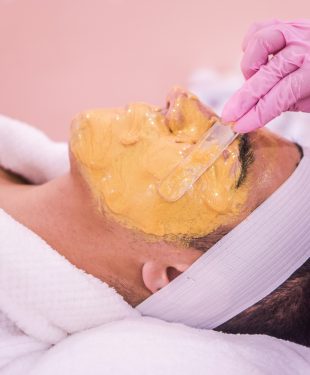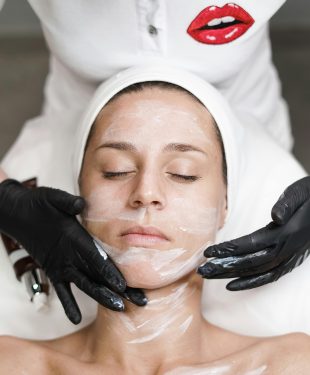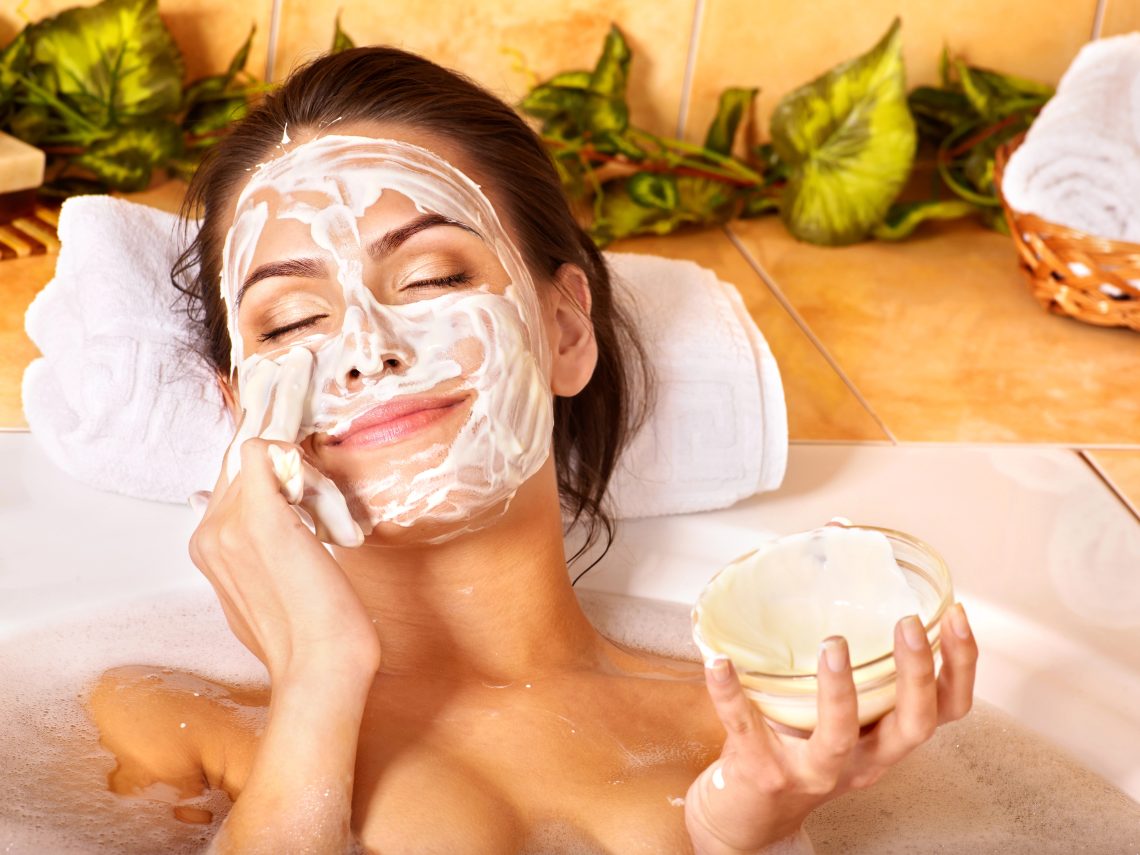Today we’d like to share tips for beginners on understanding face masks. Face masks, initially a lesser-known facet of skincare, have now flourished into a staple of beauty regimes, garnering the interest of both skincare aficionados and beginners across the UK. With an array of types and benefits to offer, these masks have evolved from luxurious indulgences to essential elements in targeted skincare routines.
Adopted by celebrities and the public alike, their rise in popularity underscores an increasing focus on bespoke skincare, transforming them from a mere fad to a reflection of the dynamic world of beauty and self-care.
What Are Face Masks For?
Delving into the world of face masks reveals a remarkable variety designed to address specific skin concerns. From hydrating dry skin to controlling oiliness, there’s a mask for every issue. Clay masks are renowned for their deep cleansing properties, ideal for those battling excess oil and acne.
Hydrating sheet masks, soaked in nourishing serums, offer a quick moisture boost, perfect for dry or tired skin. For those seeking a brightening effect, vitamin-rich formulas can help revive dull complexions. This diversity not only caters to a wide range of skin types but also allows for a tailored skincare experience, making face masks a versatile and indispensable part of any skincare routine.
Weekly Face Mask Treatment
Integrating face masks into your weekly routine is a simple yet effective way to elevate your skincare regimen. For beginners, the array of options available makes it easy to find a mask that caters specifically to your skin’s needs.
Masks infused with hydrating ingredients like hyaluronic acid and glycerin, like some of the options available at Daily Skin, are perfect for those looking to quench dry skin, leaving it feeling plump and refreshed. On the other hand, formulations with clay or charcoal offer a solution for purifying the complexion, drawing out impurities and minimising the appearance of pores.
This approach not only targets specific skin concerns with precision but also introduces easy skincare to beginners, blending the benefits of focused skincare with the relaxation and satisfaction of treating yourself.
The Growing Popularity Of Face Masks

Photo by Yulissa Tagle on Unsplash
The surge in face mask popularity can be partly attributed to the digital landscape, where platforms like TikTok have become hotbeds for beauty trends. Influencers, showcasing their skincare routines with various masks, play a pivotal role in this trend’s rise.
From the visually dramatic peel-off masks to the soothing sheet masks, these products make for engaging content that resonates with viewers. This visual appeal, coupled with the easy-to-follow demonstrations, helps demystify the application process, encouraging viewers to try them out.
Furthermore, the endorsement of these masks by influencers, often seen as trusted sources of beauty advice, has significantly contributed to their widespread acceptance and enthusiasm among a broader audience.
The Benefits Of Face Masks
The benefits of incorporating face masks into skincare routines are manifold. They are not just about enhancing skin’s appearance; they offer a therapeutic experience that contributes to overall well-being. Masks can provide deep cleansing, clearing out pores and reducing the appearance of blemishes. They also aid in hydrating and nourishing the skin, leaving it feeling refreshed and rejuvenated.
For those seeking to address signs of ageing, certain masks are infused with ingredients that promote elasticity and reduce fine lines. Moreover, the ritual of applying a face mask can be a form of self-care, offering a moment of relaxation in a busy lifestyle. This combination of aesthetic and emotional benefits makes face masks a valuable addition to any skincare regime.
Understanding the Different Types of Face Masks & Their Uses
Understanding the different types of face masks and their specific applications is crucial for achieving optimal skincare results:
Clay Masks

Photo by on Pexels
Clay masks are a staple in the skincare world, revered for their ability to detoxify and purify the skin. Ideal for oily and acne-prone skin types, these masks work by drawing out impurities and absorbing excess oil, helping to clear the pores and reduce breakouts.
The natural minerals found in clay can also help to revive dull complexions and improve skin texture, making clay masks a go-to option for those looking to achieve a clearer, more balanced skin tone.
Peel-Off Masks
Peel-off masks offer a satisfying solution for exfoliating the skin and removing dead skin cells. As the mask dries and is peeled away, it lifts off dead skin and other surface debris, revealing a smoother and more radiant complexion underneath.
These masks are particularly popular for their ability to clean deep into the pores and remove blackheads, as well as for the instant glow they can provide.
Charcoal Masks
Charcoal masks have gained popularity for their potent deep-cleansing properties. Activated charcoal is known for its ability to draw out toxins, dirt, and pollutants from the skin, making it an excellent choice for those living in urban environments or for anyone looking to deeply cleanse their complexion.
These masks can help to reduce the appearance of pores and make the skin look more refined and refreshed. Charcoal masks are especially beneficial for individuals with oily skin, as the charcoal can help to manage sebum production and prevent acne.
Hydrating Masks
Hydrating masks are a godsend for dry, dehydrated, or tired skin. Infused with moisture-rich ingredients like hyaluronic acid, glycerin, and aloe vera, these masks work to replenish the skin’s hydration levels, leaving it feeling soft, plump, and revitalised.
Hydrating masks can also help to soothe irritated skin and are perfect for use after exposure to harsh environmental conditions or as a treat for the skin after a long day. They are suitable for all skin types, including sensitive skin, and can be a lifesaver during the winter months when skin tends to be drier.
Read more beauty and skin care articles at ClichéMag.com
Images provided by Deposit Photos, BingAI, Adobe Stock, Unsplash, Pexels, Pixabay & Creative Commons


